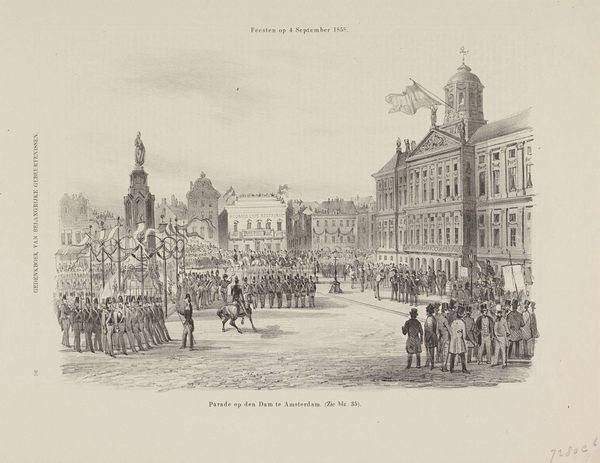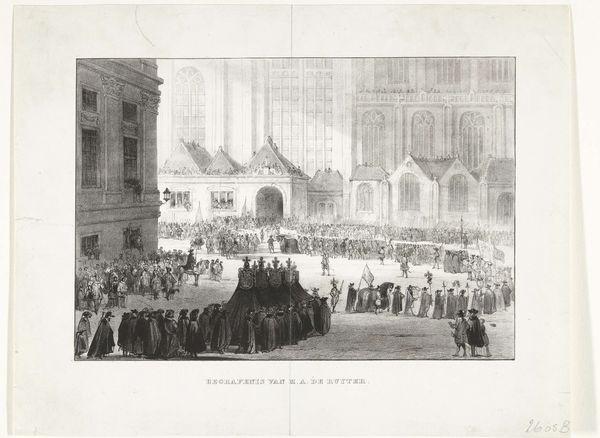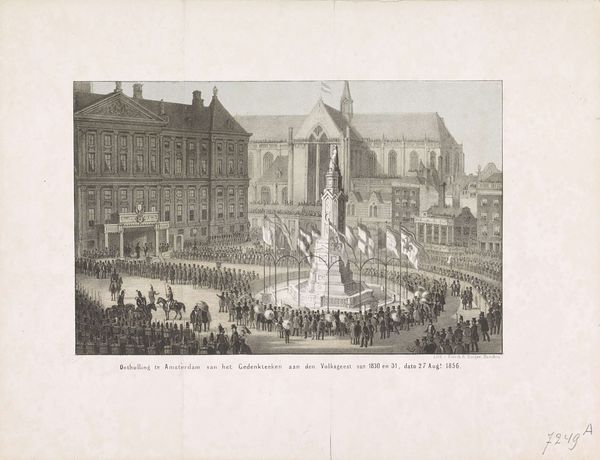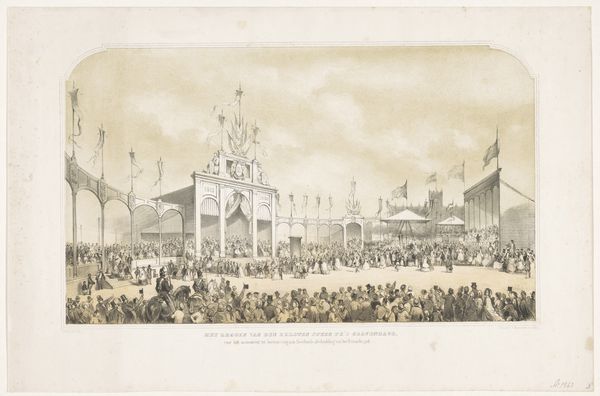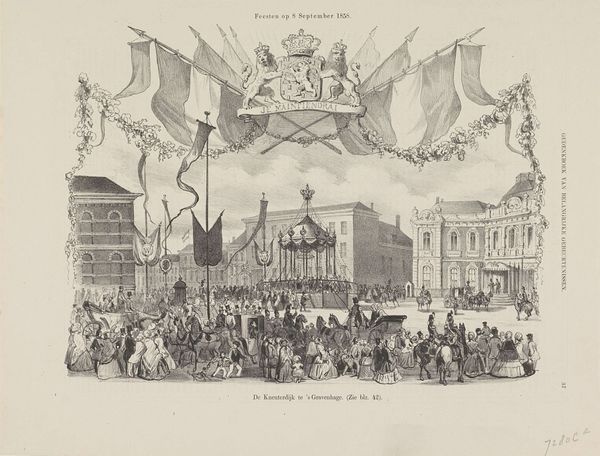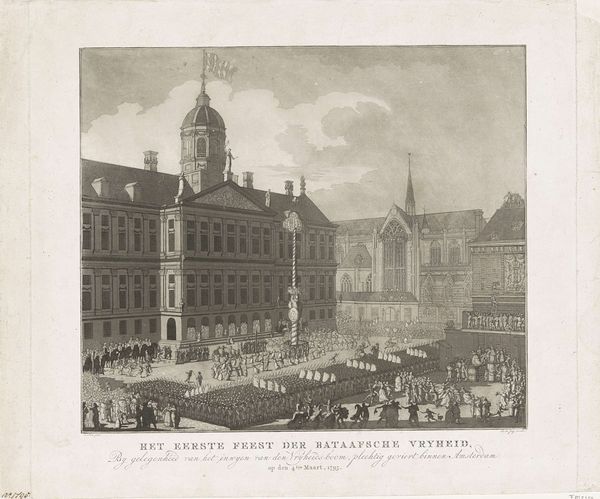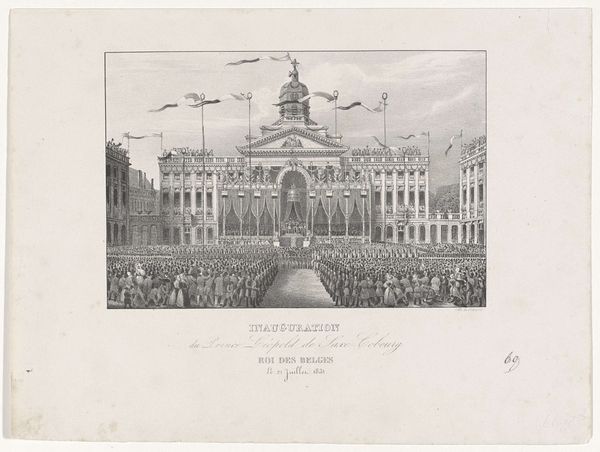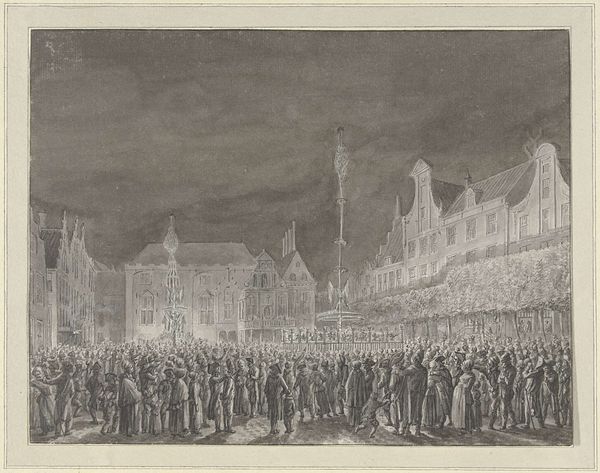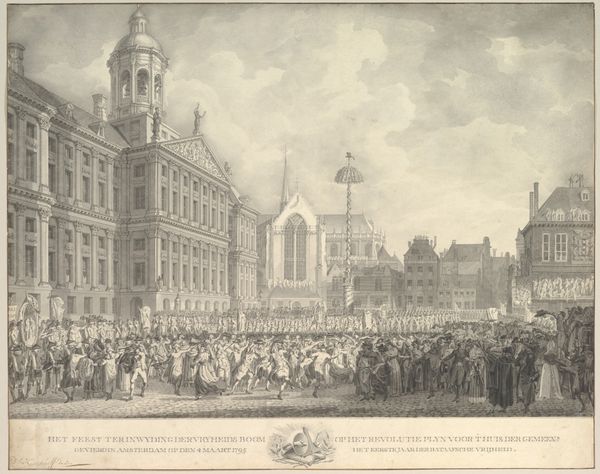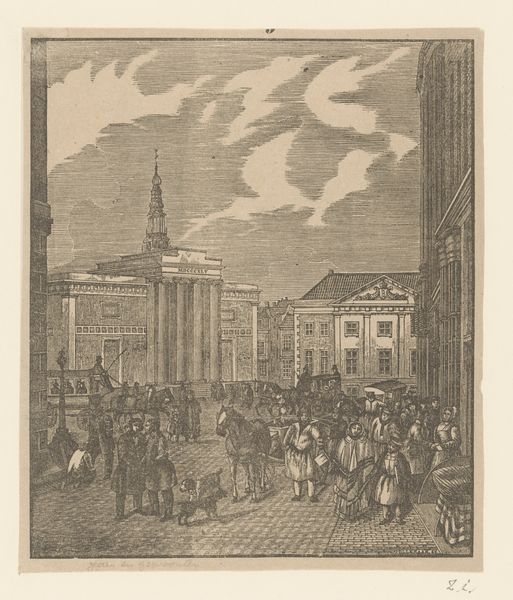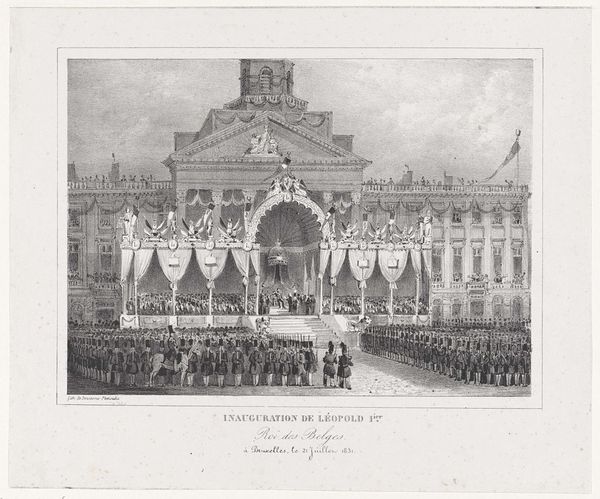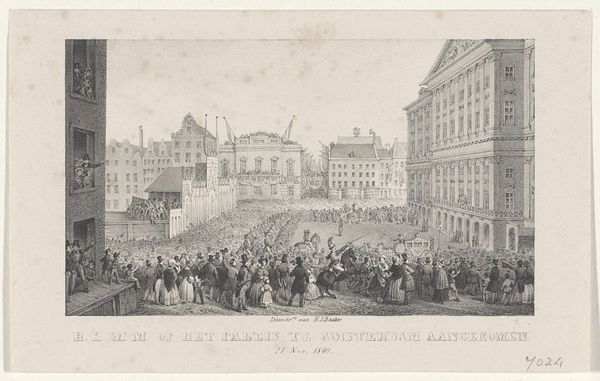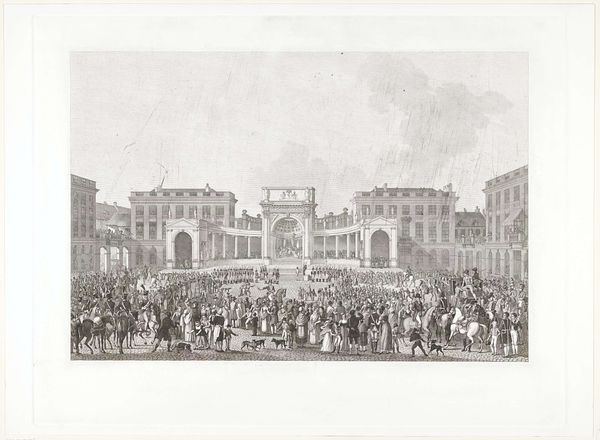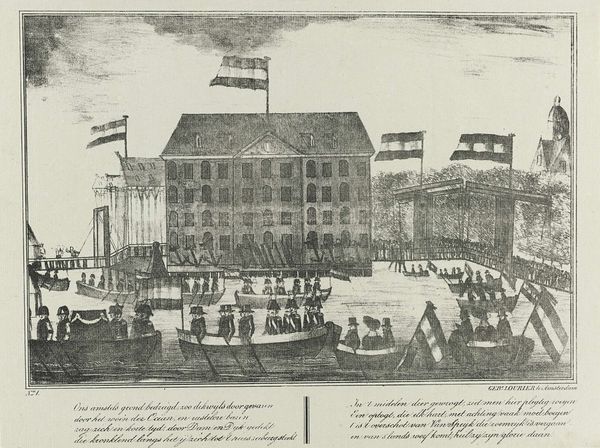
Z.M. Koning Willem 2 begeeft zich den 28 November 1840 in staatsie van het Paleis naar de Nieuwe Kerk, om aldaar gehuldigd te worden 1840
0:00
0:00
print, engraving
#
neoclacissism
# print
#
old engraving style
#
landscape
#
history-painting
#
engraving
#
realism
Dimensions: height 239 mm, width 338 mm
Copyright: Rijks Museum: Open Domain
This engraving depicts King Willem II's procession from the Palace to the Nieuwe Kerk in Amsterdam in 1840. The most striking symbols are, of course, the numerous flags—a potent display of national identity and sovereign power. Consider these flags, waving uniformly, as modern iterations of ancient standards and banners. In antiquity, military standards were not merely identifiers; they were imbued with spiritual power, believed to influence the outcome of battles. This idea surfaces again and again. The collective act of displaying and revering these flags can also be understood through the lens of group psychology. It is a manifestation of collective memory, of shared values and aspirations. This public affirmation reinforces the monarchy's legitimacy, fostering a sense of unity and allegiance. This visual rhetoric taps into the collective psyche. We can see how symbols of power, like these flags, serve as focal points for both conscious and subconscious emotional investment, binding societies together through shared symbolic language.
Comments
No comments
Be the first to comment and join the conversation on the ultimate creative platform.
